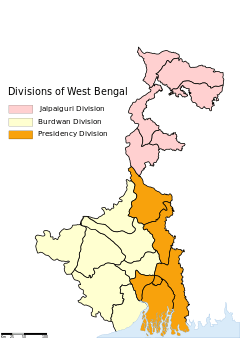Mohammed Salim (politician)
| Mohammed Salim মহম্মদ সেলিম | |
|---|---|
| Member of the Indian Parliament for Raiganj | |
|
Assumed office 2014 | |
| Preceded by | Deepa Dasmunsi |
| Member of the Polit Bureau of the Communist Party of India (Marxist) | |
|
Assumed office 19 April 2015 | |
| Member of the Indian Parliament for Calcutta North East | |
|
In office 2004–2009 | |
| Preceded by | Ajit Kumar Panja |
| Succeeded by | Constituency abolished |
| Minister for Technical Education and Training, Youth Welfare, Minority Development and Welfare, Self Employment | |
|
In office 16 May 2001 – 17 May 2004 | |
| Governor | Viren J. Shah |
| Preceded by | Satyasadhan Chakraborty |
| Succeeded by | Manab Mukherjee |
| MLA | |
|
In office 2001–2004 | |
| Preceded by | Sultan Ahmed |
| Succeeded by | Md. Abu Sufayen |
| Constituency | Entally |
| Member of Parliament (Rajya Sabha) for West Bengal | |
|
In office 1990–1996 | |
| Prime Minister |
V. P. Singh Chandra Shekhar P. V. Narasimha Rao Atal Bihari Vajpayee H. D. Deve Gowda I. K. Gujral Atal Bihari Vajpayee |
|
In office 1996 – 2002 (Two terms) | |
| Personal details | |
| Born |
5 June 1957 Khidirpore, South Calcutta, West Bengal |
| Political party | CPI(M) |
| Spouse(s) | Dr. Rosina Khatun |
| Children | 2 sons |
| Residence |
14/1D, Kabitirtha Sarani, P.O. Khidirpore, PS Watganj, Calcutta Chittaranjan S.S. Hospital, 1, Beltala Rd.Kolkata-700026 Kolkata |
| Alma mater |
University of Calcutta |
| Website | mdsalim.org |
|
As of 17 September, 2006 Source: [[1]] | |
Mohammed Salim (born 5 June 1957) is an Indian politician, belonging to the Communist Party of India (Marxist). He was inducted in the politbuero of C.P.I.(M.) in the 21st party congress organised at Vishakhapatnam in 2015. He is a member of the 16th Lok Sabha, representing Raiganj constituency.[2] Earlier, he was a member of the 14th Lok Sabha, representing the Calcutta North East constituency of West Bengal.[1] After delimitation, in the 2009 Lok Sabha election Salim contested the new Calcutta North constituency, and lost to Sudip Bandyopadhyay of the Trinamool Congress.[3][4]
Early life
Born on 5 June 1957 in the Kidderpore area of South Kolkata to Azizul Haque, an employee of Kolkata Port, and Ladly Haque, Salim was one of nine siblings. Their family could barely make ends meet and survival was a struggle, perhaps that is what instilled mental toughness and calmness in front of adversity, in Salim's character. From his childhood days, Salim was a studious boy, though he excelled in playing football and himself was an avid football fan. He did his schooling from St. Barnabas High School, Calcutta. Due to financial constraints, he would tutor his juniors or classmates to pay for his school fees and tiffin expenses. From his schooldays he came in contact with the communist ideology that he would be identified with in the future. After finishing his schooling he decided that he would study Humanities, so he decided to spend some time away from home during the time science stream forms were distributed. During this time, he was saved from drowning in a village in Uluberia by a woman, with whose family he still maintains contact. He joined the prestigious Maulana Azad College to study philosophy. During his college days, he became a part of the contemporary student's movement in West Bengal and became an active member of the Students' Federation of India. He was elected General Secretary of the student's union of his college immediately after re-imposition of democracy post the Indian Emergency. He has claimed that the Emergency was the most influential event in his life, which made him opt for politics. After passing out from Maulana Azad College he enrolled in Jadavpur University to obtain his Masters in Philosophy. During his days of student activism in Jadavpur, he met up with his future colleagues at CPI(M) Nilotpal Basu and Manab Mukherjee.
References
- 1 2 Archived 5 September 2004 at the Wayback Machine.
- ↑ "General Elections to Lok Sabha 2014 Constituency Wise Trends & Results". West Bengal. Election Commission of India. Retrieved 22 May 2014.
- ↑ Partywise Trends & Result. ELECTION COMMISSION OF INDIA 2005
- ↑ "Selim drowns in Mamata wave". The Statesman, 17 May 2009. Retrieved 2009-05-20.
